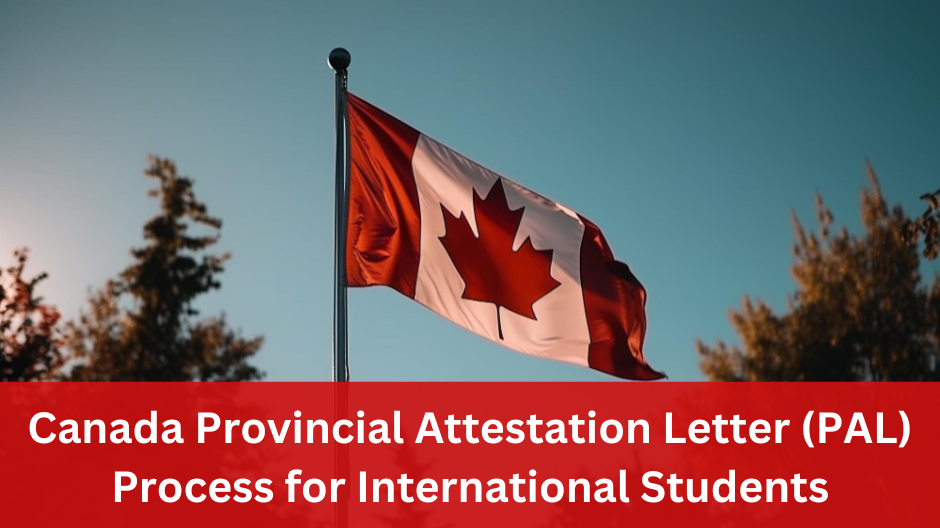Are you an international student considering Canada for your academic pursuits? Understanding the intricacies of the Canada Provincial Attestation Letter (PAL) process is fundamental for a successful transition. PAL serves as a crucial document verifying the legitimacy of your chosen educational institution in meeting provincial standards, a prerequisite for study permit applications. Delving deeper into PAL unveils its significance, ensuring compliance with provincial regulations and enhancing your credibility with Canadian authorities. Navigating this process seamlessly involves meticulous attention to detail, timely communication with your institution, and proactive preparation of required documentation. By grasping PAL’s importance and adhering to procedural requirements, you pave the way for a smoother transition into Canadian academia. Whether pursuing undergraduate, graduate, or vocational studies, PAL plays a pivotal role in facilitating your educational journey and fostering a rewarding experience in Canada’s diverse academic landscape.
Who needs a provincial attestation letter?
A provincial attestation letter is typically required for various purposes, including but not limited to:
Immigration Purposes:
Individuals applying for immigration or permanent residency in Canada may need a provincial attestation letter to validate certain aspects of their application, such as employment history or educational qualifications.
Some employers, especially those in regulated professions or industries, may request a provincial attestation letter to verify an individual’s qualifications, work experience, or professional credentials.
Educational Institutions:
Students applying to educational institutions, particularly for programs that require specific prerequisites or competencies, may be asked to provide a provincial attestation letter to confirm their academic background or achievements.
Professional Licensing:
Individuals seeking professional licensure or accreditation in certain fields, such as healthcare or engineering, may need a provincial attestation letter to demonstrate their qualifications and eligibility for licensure.
Who Doesn’t Need A Provincial Attestation Letter?
The Provincial Attestation Letter requirement does not apply to certain categories of international students:
- Preschool, elementary, and secondary school students.
- Master’s and PhD students.
- Students seeking a study permit extension.
- Visiting or exchange students.
- Temporary residents enrolled in prerequisite courses at a Designated Learning Institution (DLI), such as language programs.
- Individuals in Canada under a removal order.
- Holders of a temporary resident permit with a validity of at least 6 months.
- Family members of certain foreign nationals residing in Canada, including study permit holders, work permit holders, those with temporary residency of at least 6 months, members of foreign armed forces under the Visiting Forces Act, accredited foreign government representatives, participants in specific sports activities, workers in Canada employed by foreign news companies, and religious workers.l
Is there an expiration date for the Provincial Attestation Letter?
The Provincial Attestation Letter, once issued, does not expire, remaining valid indefinitely for the duration of the immigration application process. However, applicants should stay vigilant regarding any updates or changes in immigration policies that could impact their eligibility or application status. While the letter itself remains effective, adherence to program-specific timelines and requirements is essential to ensure the smooth processing of the application and maintain compliance with immigration regulations.
How To Get A Provincial Attestation Letter?
It’s crucial to understand that the educational institution is responsible for initiating the application process for a Provincial Attestation Letter on your behalf; you won’t be applying for it directly. The procedures and systems for obtaining this letter may vary from one province to another. Here’s a breakdown of what we currently know about the process for acquiring a Provincial Attestation Letter:
Ontario:
Ontario, although one of the last provinces to announce the readiness of its PAL processing system, was the first to unveil its strategy for distributing PALs. Effective March 28, 2024, Ontario has initiated a process for issuing PALs to prospective students. Students interested in studying should directly contact their chosen institutions to obtain a PAL. As outlined on the Ontario Colleges webpage, during the application process, the post-secondary institution will submit a PAL request on behalf of the student. Once approved by IRCC (Immigration, Refugees and Citizenship Canada) and the PAL becomes available, the institution will inform the student and furnish them with a copy of the letter. The communication and distribution methods may vary among institutions.
Alberta:
As of March 1, 2024, the Government of Alberta has started issuing Provincial Attestation Letters. Information available on Alberta’s study webpage emphasizes that:
“Accepted students should have their post-secondary institutions request a Provincial Attestation Letter on their behalf. For any questions or additional information, it is advisable to contact the registrar of the institution you have been accepted to.”
To put it differently, if you require a PAL for Alberta, your best course of action is to reach out to your school.
British Columbia :
On March 4, 2024, British Columbia launched its Provincial Attestation Letter issuing system. It’s crucial to understand that this system is intended for use by educational institutions, not by study permit applicants directly. Therefore, if you require further details on obtaining a PAL in BC, you should contact the educational institution to which you have applied.
Nova Scotia:
Starting March 28, 2024, Nova Scotia initiated the issuance of Provincial Attestation Letters. To obtain your PAL, simply get in touch with the educational institution where you intend to pursue your studies. It is their duty to acquire and provide you with the necessary PAL.
New Brunswick:
New Brunswick commenced its Provincial Attestation Letter issuance system on March 18, 2024.
To secure your Provincial Attestation Letter in New Brunswick, connect directly with your educational institution. They will guide you through the process and facilitate the delivery of your PAL.

